Chapo calls on Mozambican youth to demonstrate patriotism - AIM
Mozambique | Dialogue: “Mondlane can support, but not be part of the commission.”
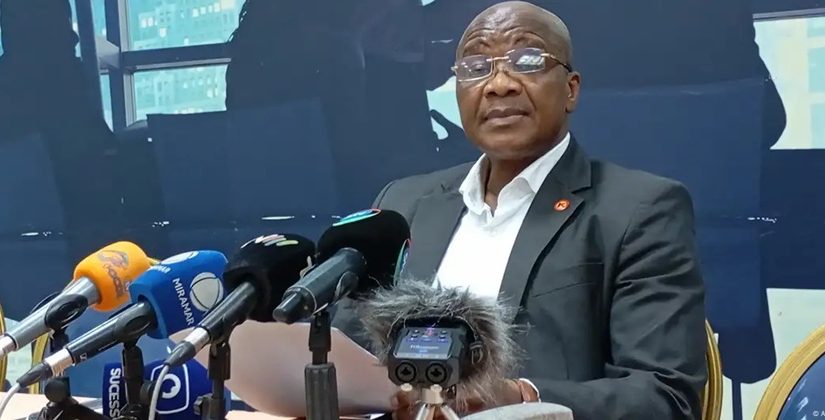
FILE -A technical structure requires criteria, says Forquilha. [File photo: DW]
- Albino Forquilha says that the National Dialogue process is inclusive, but the PODEMOS leader accuses Venâncio Mondlane of trying to integrate the technical structure [Technical Commission or COTE] without meeting the defined criteria. “There are clear rules,” he says.
The official National Dialogue process began in Mozambique this week, with the launch of the technical phase in Maputo on Wednesday (10-09). The initiative, led by President Daniel Chapo, aims to promote pacification in the country through structural reforms, including the revision of the constitution and the creation of a new electoral model.
Despite its reformist ambitions, the start of the process has been marked by criticism of its alleged lack of inclusion. Venâncio Mondlane, leader of the National Alliance for a Free and Autonomous Mozambique (ANAMOLA) and the second most popular candidate in the 2024 presidential elections, publicly denounced his exclusion from the technical commission. Mondlane maintains that his political party has concrete proposals to reform the State, focusing on the justice system and the Armed Forces, which he accuses of being used to perpetuate electoral fraud.
“The dialogue runs the risk of becoming a formal and exclusionary exercise,” warned Mondlane, emphasizing that ANAMOLA’s absence compromises the process’s representativeness.
In response, Albino Forquilha, leader of the Optimistic People for the Development of Mozambique (PODEMOS), rejected the accusations of exclusion. He stated that no one is barred from participating in the dialogue.
DW Africa: Do you believe the process will be truly inclusive without Venâncio Mondlane’s direct participation, as he claimed today?
Albino Forquilha (AF): This agreement doesn’t exclude anyone. It’s one thing to want to participate in the dialogue structure, but that’s another matter, because we’re talking about a law that’s already been passed. The platform is one of political parties, not individuals, not even candidates from the last elections. But, if we look closely, participation itself doesn’t exclude anyone. Venâncio Mondlane has a place in this process.
He was present at the launch, as he is now, as the leader of a political party. He will be able to participate, present the matters he considers relevant, and contribute, including as a member of the Council of State. He will also be consulted. This dialogue doesn’t exclude anyone. Participation in the process is not prohibited. Now, if the intention is to integrate the technical structure, that’s another matter.
DW Africa: Do you think Mondlane is excluding himself? He’s said he was excluded, that he participated today [Wednesday], at the launch] as a member of the Council of State, and that he hasn’t yet received a response to his request to join the technical commission.
AF: But he won’t receive that response because the dialogue format isn’t individual. Being a member of the Council of State doesn’t automatically grant you entry. The platform was designed for parties with parliamentary, provincial, or municipal seats. The dialogue structure is open to everyone. The goal is ideas, which have a place to be presented. Now, joining the technical structure after the deadline is complicated, especially because he doesn’t meet the requirements. But he can participate with ideas. Everything is open.
I received his letter. But in the letter, I didn’t see him say, for example, “I want to participate because points X and Y aren’t included in the terms of reference”. If that were the case, I would agree with the proposal, because we want everything to be clear and comprehensive. The dialogue covers all the important issues the country has been discussing. Participation is open – he can very well contribute. Now, integrating the technical structure is almost impossible; he didn’t meet the requirements because he doesn’t have a party with a parliamentary seat. That’s clear.
DW Africa: Will civil society participation influence the final decisions, or is it just a political formality?
AF: No, civil society will participate. The format created provides concrete steps to include everyone. There are mechanisms to bring all sectors together. Including someone with in-depth knowledge of a subject can present their perspective, participate in meetings, and contribute to decisions.
I call for the participation of NGOs, leagues, and everyone who can contribute. There is no exclusion. We are talking about an inclusive national dialogue. If we don’t practice inclusion, it makes no sense. But there may be self-excluding individuals who, for their own reasons, choose not to participate.
DW Africa: What proposals does PODEMOS present to reform the state?
AF: PODEMOS is just one of the contributors to the National Dialogue’s points. We contributed[ with ideas for constitutional reform, the powers of the head of state, the appointment of sovereign bodies, the reform of the electoral law, the model and composition, among others. These and other points were supported by all parties.
These are topics we will discuss because we believe Mozambique can have a new political system of governance. It can abandon presidentialism. It can hold elections with results in 24 or 48 hours. It can find new models for decentralizing and appointing its powers. We want to find the best path for the country, a path that avoids deaths caused by elections.
DW Africa: And what about FRELIMO’s involvement? Could it compromise the impartiality of the reforms? Is there a risk of partisan capture?
AF: I don’t think so. The model we are presenting gives the opposition a majority in decision-making bodies. I don’t believe any party leader wants to sell out their values. Everyone – opposition, civil society, and FRELIMO – is on the side of reform. We accept that reforms are necessary. There is a general agreement: things cannot continue as they were.
–


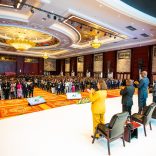


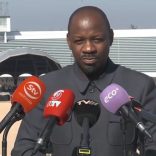
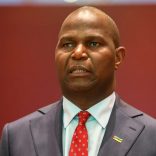
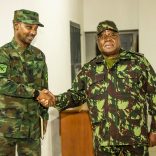
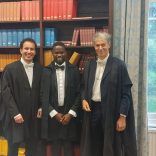
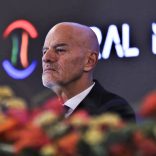
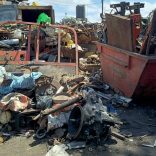
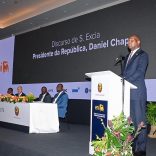

Leave a Reply
Be the First to Comment!
You must be logged in to post a comment.
You must be logged in to post a comment.